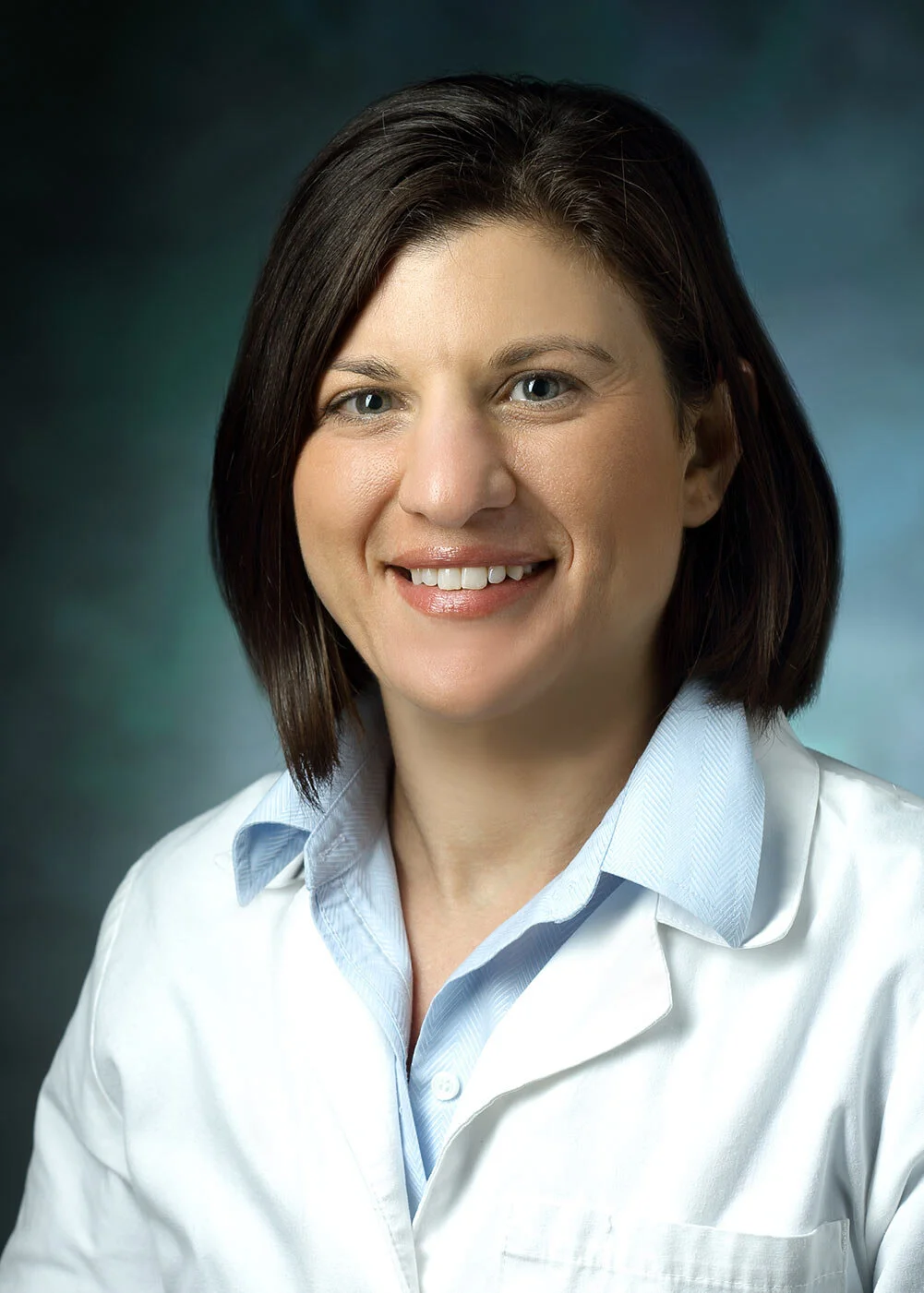Currently, my laboratory focuses on the CRISPR-Cas system, an RNA-based adaptive immune system found in bacteria that protects against invasion by viruses and plasmids. Mechanistic studies of the CRISPR-Cas system is contributing to ongoing efforts aimed at exploiting this system to both protect domesticated bacteria (such as those used in food and pharmaceutical production) and combat human pathogens and the spread of antibiotic resistance. Moreover, RNA-guided nucleases from the CRISPR-Cas system are currently being adapted for genome editing and regulation strategies in a wide variety of organisms, including humans. Indeed, the potential of the CRISPR-Cas toolkit is just being realized and studies centered on understanding how the CRISPR-Cas systems function represents an important need. To this end, my laboratory has provided structural and mechanistic insight into how CRISPR-Cas systems identify and destroy their DNA targets.
We seek to understand the molecular mechanisms of macromolecular assemblies that organize, express, and preserve the cell’s genetic information. We are particularly interested in developing kinetically accurate, atomic-resolution depictions of the dynamic assemblies that control DNA replication, gene regulation, and chromosome superstructure, and in exploiting this knowledge for chemotherapeutic development.
I am interested in cutaneous squamous cell carcinoma, the second most common malignancy with 800,000 cases diagnosed in the US each year. These tumors are the most common malignancy arising in solid organ transplant recipients and more aggressive in immunosuppressed patients. As a practicing dermatologic surgeon, I collect tumors from my patients to aid in the study of the molecular mechanisms of this cancer.
Dr. Bunz’s research objective is to understand how stress-activated signaling pathways affect the cellular responses to anti-cancer therapy. A longstanding interest is p53, a central node within a complex network of DNA damage-response pathways involved in tumor suppression. It is well-known that cancer associated p53 mutations impact the efficacy of DNA damage-based anticancer therapies, such as radiotherapy. It is now apparent that p53 also controls immune recognition, and thereby influences the efficacy of immune-based therapies. Recent work in the lab is focused on understanding the mechanistic basis for these effects, and on the development of therapeutic viral agents that can stimulate neoantigen-specific anti-cancer immune responses. The long-term goal is to better understand how current therapies work, and to develop new and improved cancer treatments.
The Cai lab focuses on understanding how the transcription process is regulated in normal and cancer cells. We are intrigued by the discoveries in our lab that many transcription factors involved in cancers can form small, liquid-like condensates in the nucleus to activate transcription. Our results are consistent with an emerging and paradigm-shifting view in biology: many biochemical reactions inside the living cell are organized in liquid-like condensates formed by weak protein and nucleic acid interactions. This implies that the material states as well as the components of cellular assemblies matter for their functions. We develop and employ many cutting-edge imaging tools in the lab, such as super resolution microscopy, single particle tracking, and optogenetics. By studying these condensates, we hope to understand how transcription is differentially organized in normal and cancer cells, and how we can target these condensates for cancer therapies.
Research in the Casero Laboratory is focused on the role of polyamines and polyamine metabolism in disease, including cancer. My laboratory studies polyamine metabolic enzymes that are important in disease etiology and drug response, and are the molecular links between inflammation, DNA damage, epigenetic changes, and carcinogenesis. My laboratory is also exploring the ability of combining polyamine depletion with epigenetically-targeted drugs to enhance antitumor immune response and our results indicate a promising new avenue to treat cancer. Finally, my laboratory is interested in genetic alterations in the polyamine pathway that lead to disease. One such disease is the X-linked Snyder-Robison Syndrome, which results in aberrant polyamine profiles. We have identified possible treatment strategies for this syndrome.
The Dang lab contributed to defining the function of the MYC oncogene including establishing the first mechanistic link between MYC and cellular energy metabolism. This foundational concept that genetic alterations in cancers re-program fuel utilization by tumors provides a framework to develop novel strategies for cancer therapy. Current lab interests include seeking metabolic vulnerabilities of cancer and define how the circadian molecular clock influences cancer metabolism, immunity, tumorigenesis and therapeutic resistance. The molecular and metabolic basis for pancreatic cancer cell immune evasion is an ongoing area of investigation.
Dr. Ewald has spent the past decade developing imaging, genetic, and 3D organotypic culture techniques to enable real-time analysis of cell behavior and molecular function in breast cancer. His laboratory seeks to understand how epithelial cancer cells escape their normal developmental constraints and acquire the ability to invade and disseminate into normal tissues.
Dr. Fertig directs an NCI-funded hybrid computational and experimental lab in the systems biology of cancer and therapeutic response for a new predictive medicine paradigm. Her wet lab develops time course models of therapeutic resistance and performs single cell technology development. Her computational methods blend mathematical modeling and artificial intelligence to determine the biomarkers and molecular mechanisms of therapeutic resistance from multi-platform genomics data. These techniques have broad applicability beyond her resistance models, including notably to the analysis of clinical biospecimens, developmental biology, and neuroscience.
Our lab is part of the Women’s Malignancy Program at the Johns Hopkins School of Medicine. Our research is focused on cancer metastasis. Of all deaths attributed to cancer, 90% are due to metastasis, and treatments that prevent or cure metastasis remain elusive. Emerging data indicate that low oxygen tension (hypoxia), which occurs in most solid tumors, alters the biophysical and biochemical parameters of the extracellular matrix within a tumor. Our work is focused on how these alterations provide cells with a license to metastasize. We are a dynamic and creative lab group that always likes a good challenge. We use 2D and 3D model systems for in vitro investigations. We have also generated novel transgenic mice for metastasis studies in vivo. Our goal is to prevent any future deaths due to breast cancer.
Dr. Stephanie Hicks’ research interests focus around developing statistical methodology, and open-source software for biomedical data analysis, which often contains noisy or missing data and systematic biases. Her research addresses statistical challenges in epigenomics, single-cell genomics, and spatial transcriptomics to improve quantification and understanding of biological variability. She has developed fast, accurate and widely used statistical methods and software for single-cell RNA-sequencing data analysis with applications that include investigating high-grade serous ovarian cancer, high-grade glioma childhood cancer, and chronic myeloid leukemia cancer.
Dr. Jaffee’s laboratory focuses on mechanisms of sensitivity and resistance to immune based therapies in mouse models and human models of pancreatic cancer. Areas of specific interest include understanding the inflammatory responses that are associated with cancer development and progression in pre-clinical and clinical models, and development of interventions to bypass specific inflammatory signals. Current projects aim to understand the pancreatic cancer tumor micro-environment and the inflammation that helps shape the tumor micro-environment early, beginning with the pre-malignant changes that are linked to the driver gene changes known to initiate pancreatic cancers (mutated Kras and p53). Her work is driving the discovery of pancreatic cancer immunobiology, and these findings are quickly being translated into immunotherapies that are showing promise for this previously immune resistant cancer. Further, she is using state of the art technologies to dissect the tumor microenvironment in mice and pancreatic cancer patients.
The Jenkins-Lord Laboratory focuses on understanding the molecular consequences of breast cancer disparities in African American women. This is accomplished through investigating the interplay between the molecular, genetic, environmental, and social contributors to breast cancer risk, and how these impact cancer outcomes in this population. Additionally, we have a special interest in characterizing how the immune microenvironment and gene expression are modulated in breast cancer based on this increased socio-environmental risk.
My laboratory aims to understand the molecular mechanisms regulating eukaryotic signaling of pathways. This knowledge provides the framework needed to interpret how alterations to a pathway, such as additional proteins, mutations to pathway components, or small molecules, modulate activity and could help guide targeted therapies. To achieve this, my lab employs a multi-prong approach that combines cell-based assays, biochemistry, enzymology, biophysics, and structural biology.
Cancer is a leading cause of death and morbidity in the United States and this problem is expected to grow as our life expectancy increases. Our laboratory has focused on the genetics of human cancer with a particular emphasis on exploring how inherited and somatic mutations can improve the clinical management of cancer. We have identified over a dozen cancer driver genes and the hereditary basis of several cancer predisposition syndromes. We have also developed several novel technologies to facilitate our studies of cancer. In particular we have focused on the development of digital genomic methods for detecting trace levels of tumor DNA. Most recently, we have focused on applying the above advances to the early detection of cancer and cancer immunotherapy.
The Laiho lab seeks to understand the regulatory events that are derailed in cancers, and to detect and exploit cancer cell characteristics that could be used as basis of new cancer therapies. Our major focus is on RNA polymerase I transcription and new therapeutic agents targeting this abundantly deregulated process in cancers.
Research in the Matunis laboratory is focused on understanding the molecular mechanisms regulating the modification of proteins by the small ubiquitin-related modifier (SUMO) and the consequences of SUMOylation in relation to protein function, cell behavior and ultimately, human disease. Particular interests include understanding how SUMOylation regulates cell cycle progression, DNA damage repair, nuclear import and export, and cell stress response pathways. We have studied SUMOylation in mammalian cells, yeast and the malaria parasite, P. facliparum, using a variety of in vitro biochemical approaches, in vivo cellular approaches and genetics.
The Meeker laboratory is located at the Johns Hopkins University School of Medicine. Utilizing a combination of tissue-based, cell-based, and molecular approaches, our research goals focus on abnormal telomere biology as it relates to cancer initiation and tumor progression, with a particular interest in the Alternative Lengthening of Telomeres (ALT) phenotype. In addition, our laboratories focus on cancer biomarker discovery and validation with the ultimate aim to utilize these novel tissue-based biomarkers to improve individualized prevention, detection, and treatment strategies.
The Nayar laboratory aims to understand the underlying mechanism(s) by which a tumor becomes resistant to targeted therapy, employing this subset of breast cancer as a model. In particular, the lab is interested in mechanisms underlying the emergence and maintenance of resistant subpopulations within tumors, genetic and epigenetic drivers of resistance, and the identification of new therapeutic vulnerabilities in targeted therapy-resistant tumors. To this end, the laboratory leverages cell and molecular biology, animal models, functional genomics tools, and high-throughput screening methodologies to understand resistance to targeted inhibitors in advanced metastatic breast cancer.
My laboratory investigates the fundamental impact of epigenomic context on genome maintenance and its contribution to malignant transformation and overall cell function. Using a combination of molecular biology, imaging, genomics, cell-based approaches, and mouse models, we have uncovered a critical role for the splicing-regulated macroH2A1 histone variant in DSB repair pathway choice, fragile site integrity and telomere maintenance. Our ongoing research aims to 1) dissect the implications of macroH2A1 splice variant imbalance – and chromatin context more generally – for genome integrity, malignant transformation and tumor cell sensitivity to genotoxic agents; and 2) examine the contribution of a newly emerging aspect of chromatin structure, the modification of nuclear RNAs, to DNA repair and genome instability.
Dr. Pienta is involved in research to study prostate cancer metastases and tumor resistance. Research projects utilize ecological principles to understand how cancer cells interact with the other cancer cells and host cells in the tumor microenvironment. The lab is currently focusing its efforts on understanding the role of polyaneuploid cancer cells in metastasis and therapeutic resistance.
The Rebecca laboratory focuses on understanding genetic and non-genetic mechanisms of therapy resistance and metastasis leveraged by cancer cells, using acral lentiginous melanoma as a paradigm. Their particular focus is on stem cell-like tumor cell subpopulations of melanoma cells that “hijack” developmental signaling cassettes to drive transient metastatic and drug resistant cell states. Their studies encompass quantitative tools, genetic editing, molecular biology, in vivo patient-derived xenograft therapy trials and bioinformatic analyses to arrive at a comprehensive understanding of actionable vulnerabilities for stem cell-like subpopulations of cancer cells.
My laboratory studies how the gut microbiota influences disease pathogenesis. Our two areas of focus are determining how specific bacteria or communities of bacteria contribute to colon cancer and responses to immune checkpoint immunotherapy. As a pathogenesis laboratory, we use multiple approaches to achieve our goals including studies in humans and mouse models, microbiology, bioinformatics and immunologic methods. We also have an increasing interest in metabolites influencing host:microbial interactions. We hope to contribute to ways to prevent colon cancer and to improve immunotherapy outcomes for patients.
Dr. Sharma’s laboratory focuses on elucidating the molecular mechanisms underlying breast cancer initiation and progression and developing various preventive and treatment strategies using mouse models and human samples. Areas of specific interest include understanding the molecular connections between breast cancer and obesity, racial disparities, and microbial dysbiosis. Better mechanistic understanding regarding various aspects of cancer initiation and metastatic progression can pave the way to reduce breast cancer related mortality.
Dr. Smith’s lab focuses on defining the functional programming of tumor-specific CD4+ and CD8+ T cells as it relates to response to immunotherapy. Owing to her interest and expertise in this area, her lab has collaborated with many clinicians within Johns Hopkins and at outside institutions on immunotherapy clinical trials aimed at improving treatment options, preventing disease recurrence, and understanding the predictors of response to treatment in both early and advanced-stage disease.
My laboratory is broadly interested in how dNTP pool levels and composition influence genetic stability, adaptive and innate immunity, inflammation, carcinogenesis, cellular senescence and aging. Current work in the lab focuses on elucidating how the dNTPase and DNA/RNA binding activities of the enzyme SAMHD1 lead to HIV-1 restriction in macrophages, anticancer drug resistance, and cellular DNA repair. Our long-range goal is to design novel small molecules that inhibit or activate the various activities of SAMHD1 in cells for antiviral, anticancer, and anti-inflammatory therapeutic uses.
Our research focuses on the role of transcriptional and epigenetic regulators in normal and cancer development, and in therapeutic response. We are passionate about asking clinically relevant questions, translating basic laboratory findings into therapeutic applications to benefit cancer patients, and providing new insights into how epigenetic regulators regulate transcription and dictate cell identity. The Toska lab uses a multidisciplinary approach integrating biochemistry, cell signaling, genomics and epigenomics at bulk and single cell level, organoid technology, and mouse genetics.
Our laboratory is interested in investigating the signal transduction and gene regulation in bacterial infection- and genotoxic stress-associated colonic inflammation and tumorigenesis, using a combination of genetic, immunological, molecular, and cellular approaches. We are studying the molecular/cellular mechanisms and pathophysiological significance of the novel and critical pathogen-host interactions and DNA damage responses that can be mechanistically linked to colon cancer etiology in mice and humans.
My laboratory focuses on trying to unravel the molecular mechanisms that lead to metastatic progression and therapy resistance. We are investigating the link between changes in the tumor microenvironment and melanoma progression, and further, how these changes may affect response to therapy. More recently, we have become very interested in how the aging microenvironment guides changes leading to increased metastasis and therapy resistance, as well as cell-autonomous aspects of therapy resistance, and have demonstrated that normal age-related changes in the microenvironment can contribute to multiple aspects of melanomagenesis and therapy resistance.
Dr. Wirtz studies the biophysical properties of healthy and diseased cells, including interactions between adjacent cells and the role of cellular architecture on nuclear shape and gene expression. He has developed and applied particle tracking methods to probe the micromechanical properties of living cells in normal conditions and disease state. His lab conducts groundbreaking research in the areas of cell motility, tumorigenesis and cancer metastasis, extracellular vesicles, digital pathology, machine learning applications to biological images, and immunology.






























